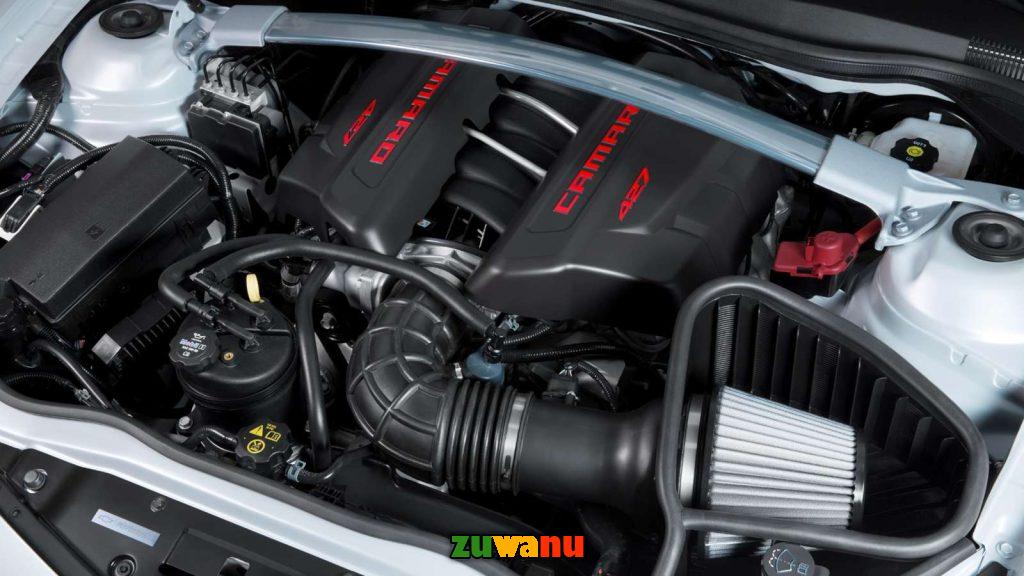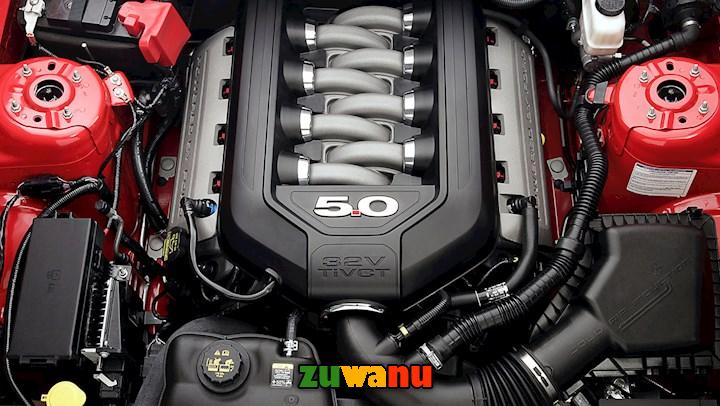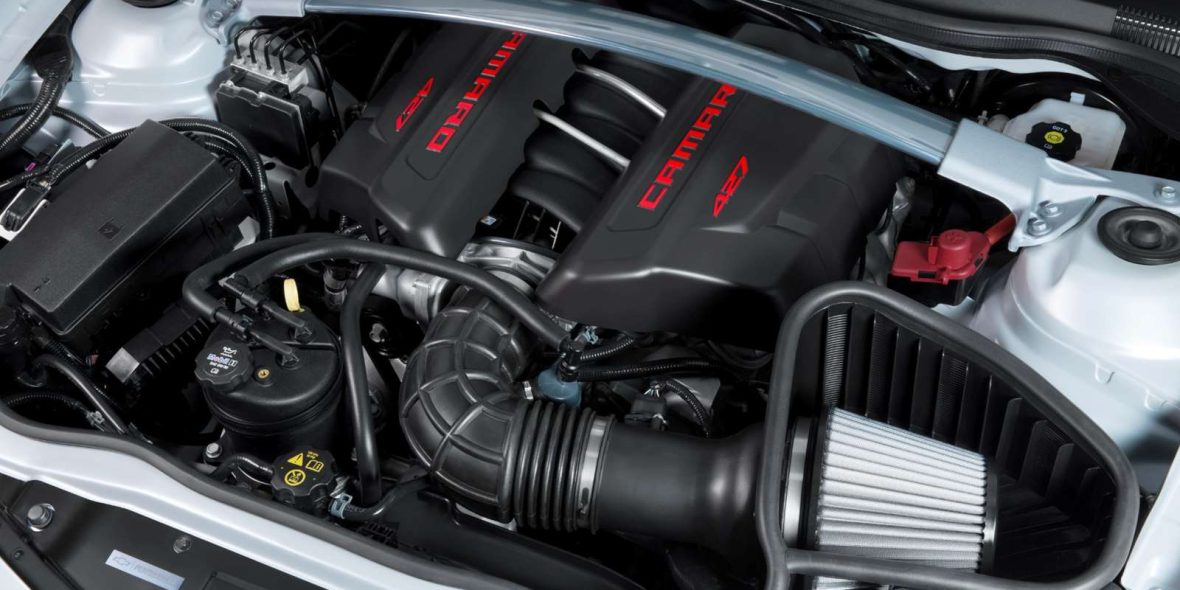Power and Problems of V8 Engine engine Cars: 10 Major Pitfalls of V8 Engine Cars
Table of Contents
Introduction: (Problems of V8 Engine engine)

The roar of a V8 engine is synonymous with power, performance, and an exhilarating driving experience. V8 engines have been an integral part of the automotive world, propelling iconic cars and contributing to a rich legacy of speed and innovation. However, like any complex piece of machinery, V8 engines are not without their set of challenges. In this comprehensive analysis, we delve into the 10 major problems associated with V8 engine cars, while also exploring their undeniable pros and cons.
Understanding the V8 Engine:
Before delving into the intricacies of V8 engine problems, it’s essential to grasp the fundamental principles of these powerhouses. A V8 engine is a type of internal combustion engine with eight cylinders arranged in a V-shaped configuration. This design provides several advantages, including smoother operation and enhanced power delivery compared to engines with fewer cylinders.
10 Major Problems with V8 Engine Cars:
- Fuel Efficiency:
One of the primary concerns associated with V8 engines is their relatively poor fuel efficiency. The larger displacement and increased number of cylinders inherently result in higher fuel consumption. As global awareness of environmental issues grows, the demand for fuel-efficient vehicles has intensified, posing a challenge for V8-powered cars to meet stringent fuel economy standards. - Environmental Impact:
The environmental impact of V8 engines extends beyond fuel efficiency. The combustion process in these engines releases higher levels of carbon emissions compared to smaller, more eco-friendly alternatives. This aspect places V8 engines under scrutiny, especially in regions with strict emission regulations and an increasing focus on sustainability. - Cost of Ownership:
Owning a V8-powered vehicle often translates to a higher cost of ownership. These engines typically require more maintenance, specialized parts, and premium fuel, contributing to increased overall expenses. Additionally, the complexity of V8 engines can make repairs and servicing more intricate, leading to higher labor costs. - Weight Distribution:
While the V8 engine’s design offers advantages in terms of power delivery, it can pose challenges in terms of weight distribution. Placing a heavy engine in the front of a vehicle can result in uneven weight distribution, affecting handling and agility. Car manufacturers must implement sophisticated suspension systems and chassis designs to counterbalance this inherent issue. - Complexity:
V8 engines are intricate pieces of engineering with a multitude of moving parts. This complexity can lead to increased susceptibility to malfunctions and failures. As technology advances and modern vehicles incorporate more electronic components, diagnosing and repairing issues with V8 engines becomes a specialized task, often requiring the expertise of skilled technicians. - Size and Space Requirements:
The V-shaped configuration of a V8 engine requires a certain amount of space under the hood. This can limit the design possibilities for certain vehicle types, especially smaller and more compact models. As the automotive industry trends towards more versatile and space-efficient designs, the size requirements of V8 engines can become a hindrance. - Towing Capacity vs. Fuel Efficiency Dilemma:
V8 engines are often favored for their impressive towing capabilities, making them popular choices for trucks and SUVs. However, the trade-off for this towing prowess is a compromise in fuel efficiency. Consumers must weigh the benefits of towing capacity against the financial and environmental costs associated with increased fuel consumption. - Initial Cost:
Acquiring a vehicle equipped with a V8 engine typically involves a higher initial cost compared to models with smaller engines. This upfront expense can deter budget-conscious consumers and contribute to the perception that V8-powered cars are reserved for enthusiasts or those with deeper pockets. - Adaptability to Electric Trends:
With the automotive industry experiencing a shift towards electric and hybrid technologies, the future adaptability of V8 engines comes into question. The inherent challenges in making large, powerful engines compatible with electric propulsion systems pose a dilemma for manufacturers looking to align with the evolving landscape of clean and sustainable transportation. - Market Demand and Resale Value:
The market demand for V8 engine cars can fluctuate based on economic conditions, fuel prices, and consumer preferences. In times of high fuel prices or increased environmental awareness, the demand for V8-powered vehicles may decline. This, in turn, affects the resale value of such cars, making them potentially less attractive to second-hand buyers.
V8 Engine Cars: Power, Performance, and Affordability 2023

Pros of V8 Engine Cars:
- Power and Performance:
Undoubtedly, the most significant advantage of V8 engines is their unparalleled power and performance. The abundance of cylinders and displacement allows these engines to generate high levels of horsepower and torque, delivering an exhilarating driving experience. - Towing Capability:
V8 engines excel in towing heavy loads, making them the preferred choice for trucks and SUVs. The torque-rich nature of these engines provides the necessary muscle to tow trailers, boats, and other sizable loads with ease. - Distinctive Sound and Feel:
The signature growl of a V8 engine is a source of pride for enthusiasts. The distinct sound and feel of a V8-powered car contribute to its charisma and can enhance the overall driving experience. - Versatility in Vehicle Applications:
V8 engines find applications in a wide range of vehicles, from sports cars to pickup trucks. This versatility allows manufacturers to cater to diverse consumer preferences, offering performance-oriented options in various segments of the automotive market. - Heritage and Prestige:
Many iconic and prestigious vehicles are powered by V8 engines, contributing to a rich heritage in the automotive world. Owning a car with a V8 engine can be a symbol of status and a connection to a long history of automotive excellence.
Cons of V8 Engine Cars:
- Fuel Consumption:
The high fuel consumption of V8 engines is a significant drawback, especially in an era where fuel efficiency is a critical factor for many consumers. The cost of constantly refueling a V8-powered vehicle can be a deterrent for budget-conscious drivers. - Environmental Impact:
The environmental impact of V8 engines, particularly in terms of carbon emissions, is a substantial con. As regulations become more stringent and the focus on sustainability increases, the ecological footprint of these engines becomes a growing concern. - Maintenance Costs:
V8 engines often require more frequent and expensive maintenance compared to smaller engines. The complexity of these engines, combined with the need for specialized parts and services, can contribute to higher ownership costs over time. - Limited Fuel Options:
Many V8 engines are designed to run on premium fuel, which can be more expensive than regular gasoline. This further adds to the overall operating costs of owning a V8-powered car, limiting the fuel options for budget-conscious consumers. - Weight Distribution Challenges:
The weight distribution challenges associated with V8 engines can affect the handling and agility of a vehicle. While advancements in chassis design and suspension systems aim to mitigate these issues, they remain a consideration in the overall performance of V8-powered cars. - Space Constraints:
The size requirements of V8 engines can limit the design possibilities for certain vehicle types, especially smaller models where space optimization is crucial. This constraint may affect the market appeal of V8-powered cars in segments that prioritize compact and versatile designs. - Future Sustainability Concerns:
As the automotive industry shifts towards electric and hybrid technologies, the long-term sustainability of V8 engines comes into question. The need for cleaner and more fuel-efficient options may impact the market demand for V8-powered vehicles. - Initial Cost Barrier:
The higher upfront cost of V8-powered vehicles can be a deterrent for many potential buyers. While enthusiasts may be willing to invest in the performance and prestige associated with these engines, the general consumer market may find the initial cost prohibitive. - Adaptability to Changing Trends:
The adaptability of V8 engines to emerging automotive trends, such as electric and hybrid technologies, remains uncertain. Manufacturers face challenges in making these large engines compatible with evolving industry standards and consumer preferences. - Resale Value Sensitivity:
The resale value of V8 engine cars can be sensitive to market fluctuations, especially those influenced by fuel prices and environmental considerations. This can impact the long-term ownership costs and overall attractiveness of these vehicles in the second-hand market.
Conclusion:
In conclusion, V8 engine cars represent a fascinating intersection of power, performance, and engineering prowess. However, they are not immune to challenges, with issues ranging from environmental concerns and fuel efficiency to high maintenance costs and adaptability to changing automotive trends. The pros, including unmatched power, towing capability, and a rich heritage, must be weighed against the cons, such as increased fuel consumption, environmental impact, and potential challenges in a rapidly evolving automotive landscape.
As the automotive industry continues to evolve, striking a balance between the allure of V8 engines and the growing demand for cleaner, more sustainable options becomes crucial. Manufacturers face the challenge of innovating and adapting these iconic engines to align with environmental standards and consumer expectations. Whether the future holds a renaissance for V8 engines or a transition to more eco-friendly alternatives remains to be seen, but their legacy in the world of automotive excellence is indelible.

